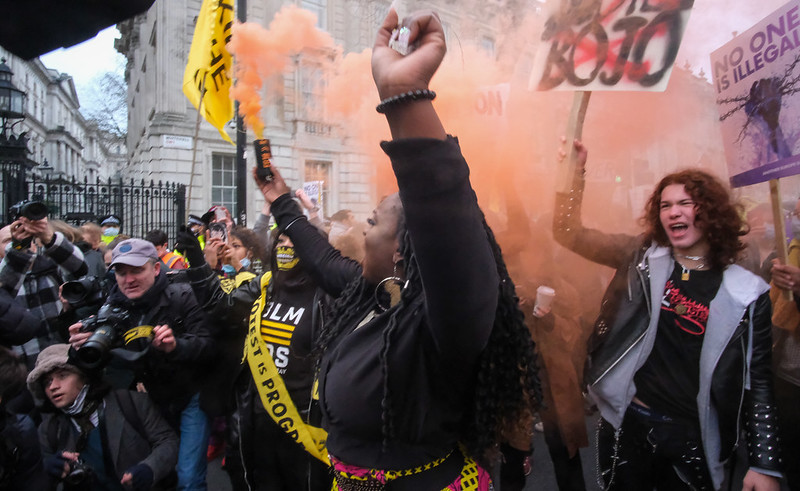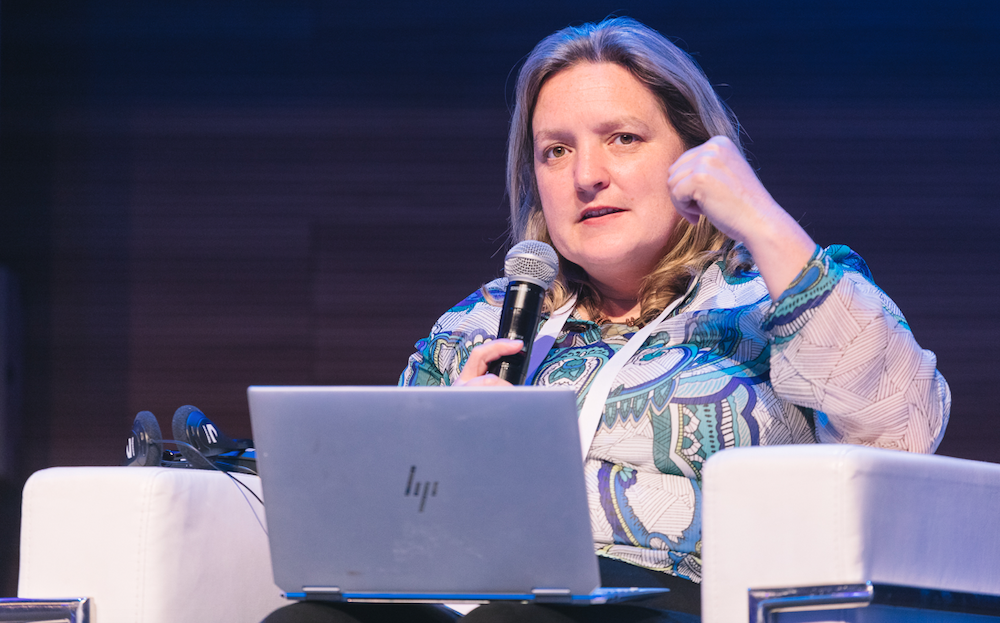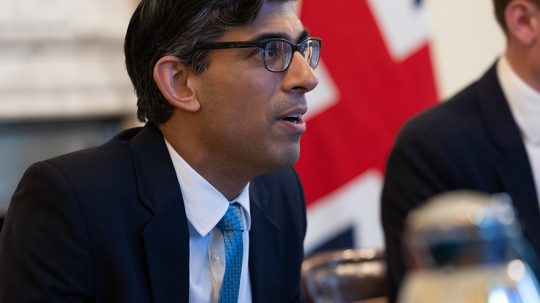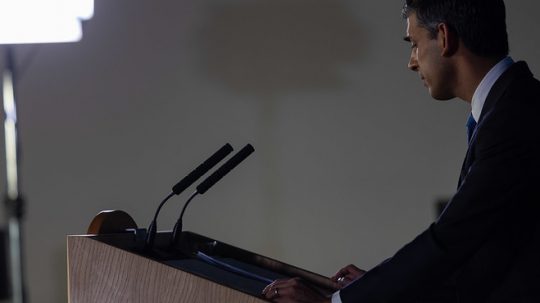The controversial Public Order Bill is receiving final amendments from Parliament and will receive Royal Assent before becoming an official Act. Here is what those amendments mean for your rights.
What is the Public Order Bill?
The anticipated Bill has come under criticism from across the House of Commons and the House of Lords for effectively reviving previous clauses that were removed from the Police, Crime, Sentencing and Courts Act (2022), before it passed.
Quinn McKew, executive director of advocacy group Article 19, said: “The Public Order Bill is another version of a Bill that was previously struck down in the House of Lords. From our perspective, as a freedom of expression organisation, there are things in that, that are fundamentally problematic to the idea of a pluralistic, democratic and open society.”
New clause added to protect journalists
A new clause (amendment 54) protecting journalists, legal observers, academics, and bystanders, was added to the bill. The amendment was brought forward following backlash against journalists recently arrested in Hertfordshire while covering a JustStopOil protest on the M25.
The clause states that there will be a protection for journalists and others monitoring protests and that a police officer may not exercise any police power to prevent that person from observing or otherwise reporting on the protest or any activities related to the protest.
Buffer zones around clinics to become law
The Bill implements ‘Safe Access Zones’ around all abortion clinics in England and Wales. The vote was passed with 299 votes for opposed to 116 votes against.
Sister Supporter, a group of Ealing residents who secured the UK’s first ever buffer zone at their local abortion clinic said: “This important step will finally mean that clinic users will be able to access abortion services free from intimidation and harassment no matter where they live and will end the postcode lottery.”
“Clinic harassment is a national issue affecting more than 42 clinics and approximately 100,000 people a year (low estimate). We’ve always said it needs lasting, national legislation to tackle the issue. Thankfully, the government now agrees, thanks to BPAS a reproductive healthcare charity, Stella Creasy MP for Walthamstow and Rupa Huq MP for Ealing Central.”
Stella MP for Walthamstow stated: “Today finally we confirmed women should not have to have their choice to have an abortion contested by anyone when they have made it – to live ‘under his eye’ for the freedom to choose.”
Introducing serious disruption prevention orders
Serious disruption prevention orders (SDPO) will allow courts to place prohibitions or requirements they consider necessary to prevent someone from causing serious disruption. These may include prohibiting an individual from being in a particular place, being with particular people, having particular articles in their possession and using the internet to facilitate or encourage person to commit a protest-related offence.
A court may also require a person subject to a SDPO to wear an electronic tag. Breach of a SDPO is a criminal offence carrying a maximum penalty of six months’ imprisonment, an unlimited fine, or both. However, under clause 28, a court may not renew a serious disruption prevention order more than once.
McKew said: “[The Public Order Bill includes things like] banning protests if they get too noisy and making it illegal for people to kind of chain themselves to buildings, or to obstruct people’s access in certain ways, which are fundamental ways that people draw attention to injustice, by making things uncomfortable for people. That’s the whole point of protest and demonstration and debate. They’re supposed to draw attention to themselves.”
Stop and search without suspicion
Lord Paddick, with the backing of Baronesses Lady Chakrabarti and Lady Meacher, and the Bishop of Manchester, stood to remove Clause 10 and 11 from the bill relating to stop and search.
Clause 10 and 11, which has been described as “utterly disproportionate, anti-democratic and unacceptable”, currently increases police powers and allows a police officer to arrest people on the suspicion of causing a protesting offence such as causing a public nuisance.
Paddick stated: “These are a significant expansion of police powers at a time when confidence in the police is waning and on a day when another police officer has been given multiple life sentences for, among other things, abusing his authority. There is potentially an endless list of objects that could be made, adapted, or intended ‘for use in the course of or in connection with’ protest offences.”
Baroness Jones of Moulsecoomb reinforced Paddick’s statement and added that clause 11 alongside clause 10 would worsen the relationship between the public and the police. Baroness Jones herself has been arrested at a protest in the past, as Lord Paddick reminded the house.
Baroness Jones stated: “Clauses 10 and 11 will definitely be able to change that relationship for the worse. The police will be able to physically stop and search protesters with or without suspicion. I do not know how awful that sounds to noble Lords, but we feel that we are in a democracy. We are not in Iran or Russia; we are meant to be in a democracy where the police are not allowed to do things like that.”
Baroness Chakrabarti backed the amendment and reminded the house that stop and search is a human rights issue. In 2003, protestors and journalists who attended a demo against an arms fair in the Docklands, London, were stopped and searched under Section 44 of the Terrorism Act.
Speaking about the incident, Baroness Chakrabarti said to the house: “I sent a young lawyer from Liberty down to Docklands; he came back with large numbers of notices that had been issued to protesters and journalists, and predominantly to black and brown people, under Section 44 of the Terrorism Act. That was stop and search without suspicion. It took many years to take that case all the way to the European Court of Human Rights in Strasbourg, where of course it was found that that power was just too broad.”
David Stuart Walker, Lord Bishop of Manchester, who is also co-chair of the national police ethics committee and the chair of the Greater Manchester Police ethics advisory committee, called stop and search an overused tool.
“Stop and search can be an extremely useful tool in the police kit box, but, like many tools, it works far less well if it is overused or used for the wrong task. Eventually, it loses its efficacy entirely.”
The Lord Bishop went on to make what he described as a ‘modest proposal’: a commitment from the government to refrain from any extension of stop and search powers until it is clear that the existing powers are being used properly and proportionately.
Despite the efforts of Lord Paddick, Baronesses Lady Chakrabarti and Lady Meacher, and the Bishop of Manchester, clauses 10 and 11 will remain in the bill.
Keeping a cap on democracy
Since 2022 the government has passed several acts and pieces of legislation that reduce people’s ability to hold authority to account and have their voices heard. The right to freedom of expression, which is protected under article 10 of the Human Rights Act, enables people to hold and publicly express their opinions.
McKew explained that threats to freedom of expression under proposed legislation like the Public Order Bill puts UK democracy at risk. McKew said: “The ability to dissent, to debate, to call leaders into account, that is fundamentally an expressive act. And so, I’d say for democracy, freedom of expression is the most important human right.”
Once the Bill receives royal assent, it will become the Public Order Act 2023.





